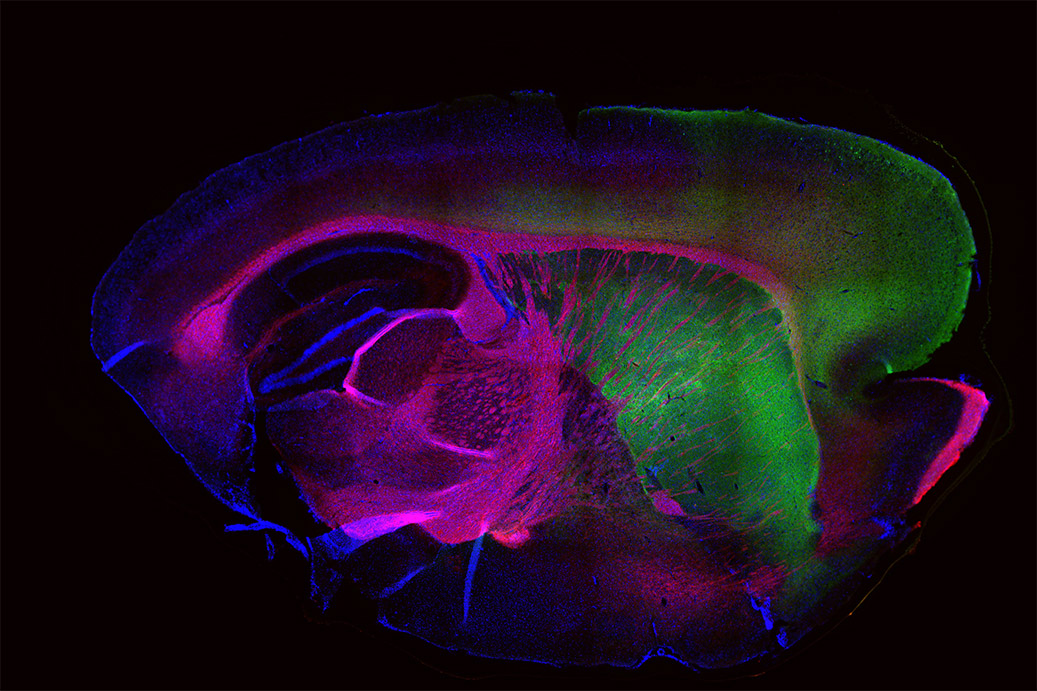Dr. JORDI ALBERCH VIÉ
Research Group: Neuronal Connectivity and Dysfunction in Huntington’s Disease and Basal Ganglia Disorders

Research overview
Brain network organization shapes the course and expression of neurodegenerative disorders. Genetic, cellular or even environmental factors induce neuronal dysfunction in selective neuronal populations affecting their connectivity, which is responsible for the symptomatology. Thus, our main objective is to understand the molecular and cellular mechanisms that modulate synaptic plasticity, neuronal network vulnerability and integrity in basal ganglia disorders for developing new treatments to protect or restore structural and functional connectivity.
Advanced microscopy, calcium imaging, optogenetic stimulation, electrophysiology, neuroimaging and behavioural analysis are some of the technical approaches used to identify alterations in neuronal circuitry affecting motor and cognitive behaviour in in vivo and in vitro experimental models of Huntington’s disease, Chorea Acanthocytosis and other neurodegenerative diseases.
Strategic lines
- Control of the excitatory/inhibitor balance of basal ganglia networks and their involvement in neurodegenerative processes.
- Optogenetic study to assess the affectation of cortico-basal ganglia-thalamus loop in altered motor coordination in Huntington’s disease.
- Identification of new drugs that recover functional connectivity (glutamate-dopamine-acetylcholine-GABA) of basal ganglia